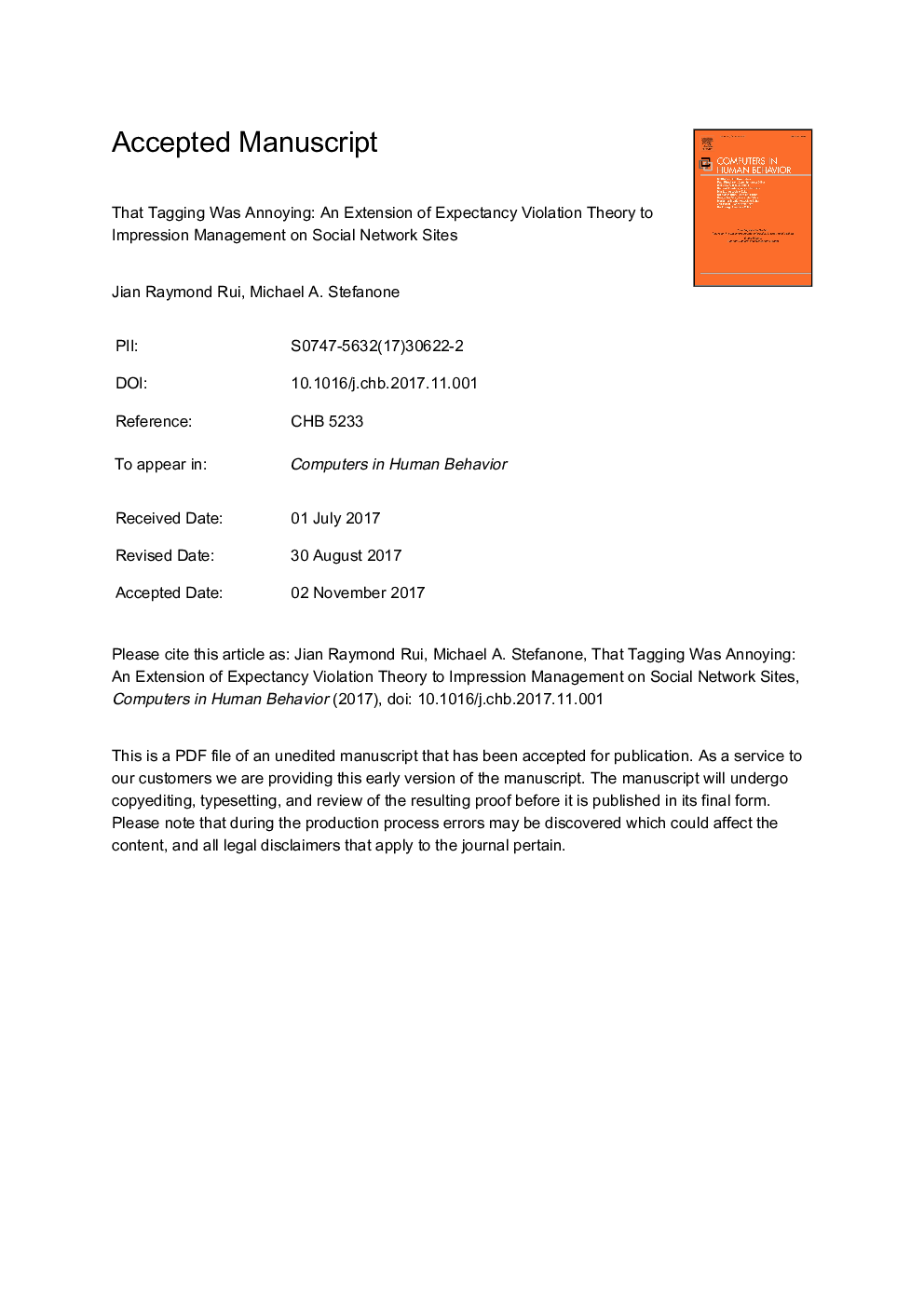| Article ID | Journal | Published Year | Pages | File Type |
|---|---|---|---|---|
| 6836194 | Computers in Human Behavior | 2018 | 44 Pages |
Abstract
Built on expectancy violation theory, this study investigated how individuals respond to face-threatening information (FTI) on Facebook. We compared how external contingencies of self-worth (CSW; staking self-worth on others' evaluations) influenced negative affect and remediation between publicly and privately exchanged FTI. Participants were exposed to two putative pieces of FTI concerning their academic performance and morality from an acquaintance provided either publicly or privately. Results (NÂ =Â 204) show that external CSW only predicted negative affect in the public condition, and negative affect mediated the impact of external CSW on remediation only when FTI concerning morality was public. Our findings suggest that impression management online is a function of self-esteem, the subject, and publicness of FTI.
Related Topics
Physical Sciences and Engineering
Computer Science
Computer Science Applications
Authors
Jian Raymond Rui, Michael A. Stefanone,
